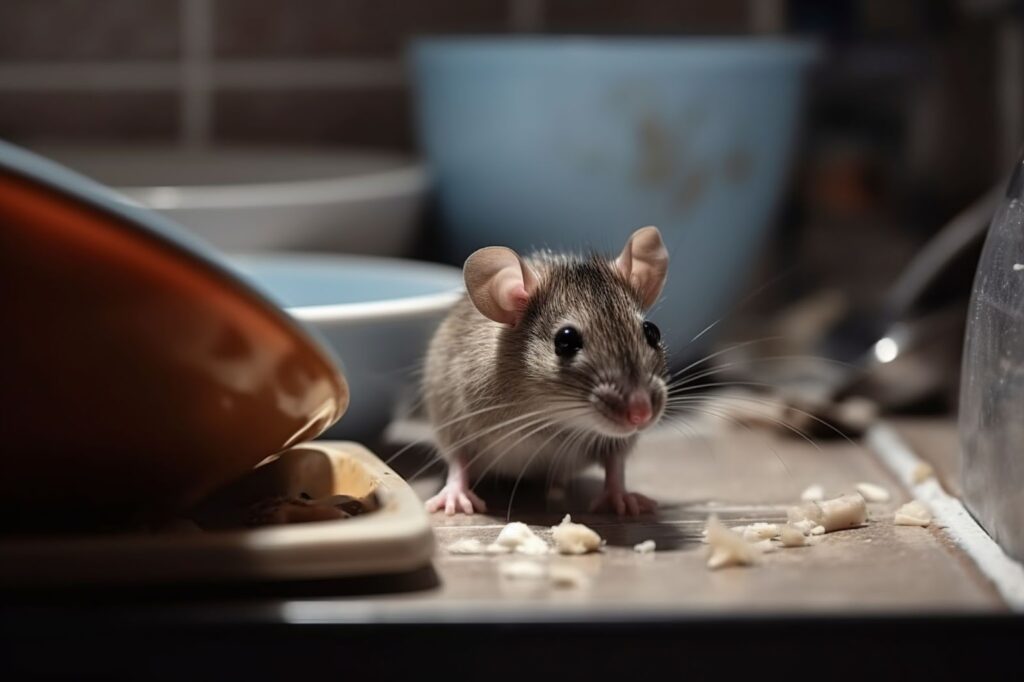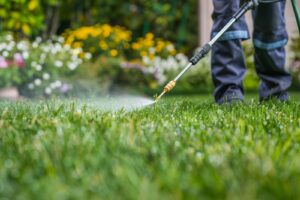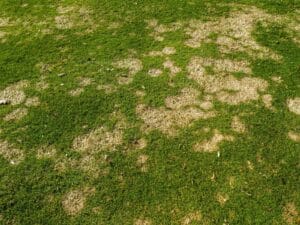As the temperature drops and the winter season approaches, your home becomes a haven for pests seeking warmth and shelter. From rodents like mice and rats to insects like cockroaches and spiders, these unwanted guests can invade your living spaces, leading to potential health hazards and property damage.
9 Cold Weather Tips
This blog will explore effective strategies for keeping your home pest-free during winter. From sealing entry points and maintaining a clean environment to utilizing natural deterrents, we’ve got you covered with valuable insights and tips to help you protect your home and family from winter pest infestations.
Let’s embark on a journey to ensure a cozy and pest-free winter season for your home.
1. Seal Entry Points.
Sealing entry points in your home is essential for maintaining a pest-free environment year-round. These openings, whether cracks, gaps, or crevices in walls, windows, or doors, serve as welcome mats for pests like rodents and insects. Sealing entry points becomes even more critical when these pests seek refuge from the cold in winter.
Eliminating these access routes prevents pests from infiltrating your living spaces. It’s a small investment that pays off in long-term peace of mind and preserving your home’s value.
2. Reinforce Doors and Windows.
Reinforcing your doors and windows during the winter is critical to pest control. As temperatures drop, pests like rodents and insects seek warmth and shelter. Doors and windows not adequately sealed or reinforced often serve as convenient entry points for these unwanted intruders. Even the tiniest gaps or cracks are an open invitation for pests to enter your home.
By reinforcing these vulnerable areas, you keep pests out and maintain a comfortable indoor temperature. This enhances your energy efficiency and reduces the risk of a pest infestation, ensuring a pest-free and cozy living environment throughout the winter months. It’s a proactive measure that offers comfort and peace of mind, helping you protect your home and preserve its value.
3. Keep Your Home Clean.
Maintaining a clean home during winter weather is a crucial aspect of pest prevention. In the colder months, pests actively seek warmth and shelter, making your home an attractive target. However, a clean environment reduces the incentives for pests to invade.
Keeping your home clean eliminates accessible food sources, including crumbs and spills, which would otherwise attract pests like ants, cockroaches, and rodents.
Additionally, accumulated food debris and garbage emit odors that draw pests in, but regular cleaning helps prevent these odors from developing. Moreover, a clean home eliminates hiding spots for pests, as they often seek refuge in cluttered or neglected areas.
Lastly, maintaining cleanliness helps keep your home dry, which is crucial because some insects are attracted to damp environments. Overall, a clean house creates an unwelcoming environment for pests, reducing the likelihood of infestations during the winter months.

4. Store Your Food Properly.
During winter, your pantry becomes an attractive destination for pests seeking refuge from the cold. Proper food storage plays a pivotal role in deterring pests.
Firstly, pests are drawn to accessible food sources, such as open bags of grains, unsealed containers, or crumbs left on countertops. When you store food in airtight containers or sealable bags, you eliminate these easy access points, making it far less likely for pests to discover and infest your pantry.
Secondly, pests are not only attracted to food but also to food odors. Inadequately stored foods emit enticing scents that lure pests into your home. By securely storing food items, you minimize the release of these odors, reducing the risk of pests being drawn to your kitchen and pantry areas.
Moreover, proper food storage prevents contamination and spoilage. Pests might introduce harmful bacteria and pathogens into your food, leading to health risks. By keeping food sealed and protected, you maintain its quality and reduce the chances of foodborne illnesses.
5. Remove Clutter.
Clearing clutter is of utmost importance for effective winter pest control as it diminishes the hiding places and refuge pests seek in your home.
Cluttered areas, like stacks of magazines, piled-up boxes, or unused items, create ideal hiding spots for pests like rodents, insects, and spiders. When these spaces are clutter-free, it becomes more challenging for pests to establish nests undetected.
Moreover, clutter makes it difficult to spot signs of pest activity, allowing infestations to grow unnoticed. Additionally, pest control efforts, such as setting traps or applying repellents, are less effective in cluttered areas where pests or their hiding spots are hard to access.
Beyond pest-related concerns, clutter easily creates safety hazards and impedes thorough cleaning, making it easier for food residue to accumulate and attract pests.
A clutter-free environment promotes a more sanitary and safe living space and provides peace of mind, reducing the likelihood of hidden pest infestations during the winter.
6. Maintain Your Yard.
Maintaining your yard during the winter is a critical aspect of winter pest control, primarily because it directly impacts the likelihood of pests finding their way into your home.
To start, it helps prevent pests from using the exterior of your home as an entry point by regularly trimming trees and shrubs that may serve as pathways for rodents and insects.
Additionally, a well-kept yard reduces hiding spots for pests. Fallen leaves, debris, and overgrown vegetation offer shelter and warmth for pests seeking refuge from the cold.
Furthermore, proper yard maintenance decreases the presence of attractants that draw pests. Standing water, rotting vegetation, and overripe fruit lure mosquitoes, flies, and rodents, making managing drainage and fruit tree care important.
Lastly, you limit their opportunities to multiply by addressing conditions that allow pests to breed, such as stagnant water or piles of organic matter.
7. Store Your Firewood Properly.
Firewood is an attractive shelter and nesting spot for various pests, including termites, ants, spiders, and rodents.
When firewood is stored improperly, it creates an ideal environment for these pests to thrive, especially during the colder months when they seek warmth and shelter. By storing firewood correctly, you deter these pests in several ways.
Firstly, keeping firewood at least 20 feet away from your home minimizes the chances of pests from the woodpile making their way indoors. Termites and ants, for instance, can easily transition from the firewood stack to your house if it’s too close.
Elevating the woodpile off the ground further discourages pests, reducing moisture and the potential for ground-dwelling insects to infest the wood.
Moreover, inspecting firewood for signs of pest activity before bringing it inside helps prevent an infestation from spreading into your home. Ensure the wood is dry and free from pests, nests, and eggs.
8. Use Natural Pest Deterrents.
Peppermint oil is a powerful natural repellent known for its strong scent, which is pleasant to humans but repulsive to many pests like rodents and insects.
Soaking cotton balls in peppermint oil and strategically placing them in areas where pests may enter your home might deter them from crossing the barrier.
Diatomaceous earth is another natural remedy that can be particularly useful for deterring crawling insects like ants and cockroaches. It is a non-toxic powder composed of microscopic fossilized aquatic organisms.
When insects come into contact with diatomaceous earth, it damages their exoskeletons, leading to dehydration and death. It’s safe to use around the home, provided it is kept dry and can be applied in cracks, crevices, and other areas where pests are likely to travel.
Additionally, many plants possess natural pest-repelling properties. For example, lavender, rosemary, and mint are known for their aromatic qualities that pests find unpleasant. Planting these herbs around your home or garden can be a natural barrier against pests. Marigolds are known for deterring various insects, including mosquitoes and aphids, making them a valuable addition to your outdoor spaces.
Incorporating these natural pest deterrents into your winter pest control strategy helps keep your home pest-free. It reduces the need for chemical pesticides, making it a safer and more environmentally friendly approach to pest management during the colder months.
9. Utilize Pest Control Services.
Professional pest control experts possess the knowledge, experience, and specialized treatments to effectively identify, eliminate, and prevent pest issues, ensuring a pest-free and comfortable living environment.
Pest control services protect your property and prevent potential health risks and costly property damage associated with winter pest infestations. Investing in professional pest control is a smart preventative measure to ensure a worry-free winter season.
Pest Control Services With Summit Lawn & Pest Control
Ready to safeguard your home from winter pest invasions? Choose Summit Lawn & Pest Control as your trusted partner for all your pest control needs. Our experienced team is well-equipped to handle the unique challenges posed by cold weather pests, ensuring that your home remains pest-free and comfortable throughout winter.
With our tailored solutions, eco-friendly practices, and commitment to customer satisfaction, you can enjoy peace of mind knowing that your home is in capable hands.
Don’t wait until pests become a problem – contact Summit Lawn & Pest Control today or call us at 801.473.9926 and experience the difference of professional, reliable, and effective winter pest control services. Your pest-free winter starts here.







